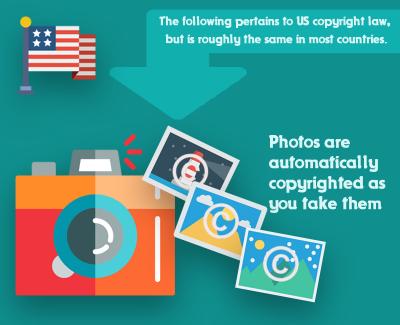Shutterstock is a popular stock photography website that offers a vast collection of images, videos, and music tracks. While it provides valuable resources for creative projects, users must understand the legal implications associated with downloading content. This article explores Shutterstock‘s licensing policies and the risks associated with using downloader tools.
Understanding Shutterstock and Its Licensing Policies
Shutterstock operates under a licensing model which allows users to access a broad range of media through various subscription plans or one-time purchases. The key aspect of these licenses is that they dictate how users may legally use the downloaded content. There are two primary types of licenses: the standard license, which allows for personal and commercial use under certain conditions, and the enhanced license, which provides greater flexibility and fewer restrictions. It is crucial for users to read and comprehend these licenses, as violating the terms can lead to copyright infringement.
Shutterstock‘s licensing agreements typically prohibit the use of their images in ways that could be deemed unlawful or damaging to the brand. For instance, using an image in a manner that implies endorsement or sponsorship without permission is a violation. Additionally, users are not permitted to distribute the images or use them in merchandise without proper licensing. Failure to adhere to these terms can result in legal actions, fines, and the removal of access to Shutterstock‘s services.
What Are Shutterstock Downloader Tools
Shutterstock downloader tools are applications or browser extensions that claim to enable users to download images from Shutterstock without purchasing a license. These tools can appear appealing due to the promise of free access to premium content. However, they come with significant legal and ethical risks. Using such tools often violates copyright laws and Shutterstock’s terms of service, which can lead to serious legal repercussions including lawsuits. Moreover, these tools can pose security threats, as they may harbor malware or jeopardize personal data. Overall, while the lure of free resources is strong, the potential legal troubles and security risks associated with downloader tools make them a potentially risky choice.
The Legal Implications of Using Downloader Tools
When it comes to utilizing Shutterstock downloader tools, understanding the legal landscape is paramount. Copyright laws are designed to protect creators’ rights, and using these downloader tools can sometimes cross a fine line. Here’s what you need to consider:
- Copyright Violations: Most images on Shutterstock are protected by copyright, meaning they cannot be used without proper licensing. Downloading and using these images without permission can lead to serious legal consequences.
- License Agreements: Shutterstock provides images under specific license agreements. Tools that bypass these agreements could result in your use being classified as unauthorized, which can open the door to legal action.
- Piracy Accusations: Using downloader tools that promote free access to paid content might classify you as a pirate. This not only violates laws but also damages your reputation within the creative community.
It’s crucial to remember that while downloader tools might offer an enticing shortcut, the risks of legal repercussions often outweigh the temporary benefits. Always consider legitimate sources for images and invest in licenses to ensure that you’re staying on the right side of the law.
Risks Associated with Shutterstock Downloader Tools
Using Shutterstock downloader tools may seem like an appealing option to save costs, but there are significant risks involved that you should be aware of:
- Legal Action: As mentioned earlier, the potential for lawsuits due to copyright infringement is very real. Shutterstock and other image providers actively monitor and enforce their copyrights.
- Malware Issues: Many downloader tools are requests for malware disguised as a means of accessing free content. Using unreliable software can compromise your device’s security and lead to data theft.
- Quality Control: Free tools might not provide high-quality downloads. This could result in compromised image resolution, affecting the overall quality of your projects.
- Ethical Considerations: Relying on downloader tools undermines the value of the creative work that artists put into their images. Respecting their efforts fosters a healthier creative ecosystem.
In conclusion, while the allure of downloader tools might be tempting, weighing these risks against the benefits is essential. Make informed decisions—prioritize legality, quality, and ethics in your image sourcing practices.
Alternatives to Downloader Tools for Accessing Images
While downloader tools can be tempting for quick access to images, there are several legitimate alternatives that ensure you’re operating within the law and respecting copyright. Here are some great options to consider:
- Stock Photo Websites: Platforms like Shutterstock, Adobe Stock, and iStock offer vast libraries of high-quality images. With subscription plans or one-time purchases, you can access a range of visuals while ensuring legal usage.
- Free Stock Photo Sources: Websites such as Unsplash, Pexels, and Pixabay provide stunning images free of charge. Just be sure to check the licensing agreements—most allow for personal and commercial use without attribution, but it’s always best to double-check.
- Creative Commons Images: Websites like Flickr allow users to search for images licensed under Creative Commons, which enables use with appropriate attribution. Make sure you understand the specific license terms of each image.
- Hire a Photographer: If you have specific needs, consider hiring a professional photographer. This can give you unique images tailored to your brand while avoiding any copyright issues.
- Create Your Own Images: With easy access to smartphones and basic photo-editing software, you can create high-quality, custom images that represent your brand perfectly. This route not only ensures originality but can also enhance your brand identity.
By choosing these alternatives, you not only promote ethical practices but also support creative professionals in the industry.
Best Practices for Using Stock Images Legally
Using stock images can greatly enhance your content, but it’s crucial to handle them properly to avoid legal pitfalls. Here are some best practices to keep in mind:
- Read the Licensing Agreements: Always read the terms of use for any image you intend to use. Licensing can vary significantly, and understanding these terms helps prevent misuse.
- Keep Records: Maintain a record of where you sourced images and the licensing agreements. This can protect you if questions about usage arise later.
- Avoid Modifications: Some licenses prohibit modifications to images. Stick to the guidelines provided to avoid potential legal issues.
- Give Attribution When Required: If an image requires attribution, make sure to credit the creator properly. This not only respects the artist’s work but also builds credibility for your content.
- Stay Updated on Licensing Changes: Stock photo licensing terms can change. Regularly check back on the licenses of the images you use to ensure they still comply with current rules.
By following these best practices, you can confidently incorporate stock images into your content while minimizing legal risks. Remember, respecting copyright is not just about compliance; it’s about honoring the creative efforts of artists everywhere!
User Experiences with Downloader Tools
When it comes to using downloader tools for accessing Shutterstock images, user experiences can vary widely. Some users have shared positive feedback, appreciating the convenience and speed these tools offer. They often highlight the following benefits:
- Time-saving: Many find that downloader tools significantly reduce the time spent on searching and downloading images one by one.
- Batch Downloads: The ability to download multiple images simultaneously is a game-changer for professionals needing large galleries.
- User-Friendly Interfaces: Numerous tools are designed with intuitive interfaces, making them accessible even for those who aren’t tech-savvy.
However, it’s not all sunshine and rainbows. A segment of users has encountered issues that raise concerns. These include:
- Legal Risks: Some users reported receiving takedown notices or facing legal action for unauthorized downloads.
- Quality Issues: While the tools often promise high-quality images, some users found that the downloaded files were of inferior resolution or quality.
- Security Concerns: Reports of malware and phishing attempts have come from users who downloaded tools from unverified sources.
In conclusion, while many users enjoy the benefits of downloader tools, they must remain vigilant. It’s essential to weigh the conveniences against potential legal and security risks, ensuring any tool used is reputable and compliant with copyright laws.
Conclusion: Making Informed Choices About Image Downloads
Navigating the world of image downloads can be tricky, especially with the growing popularity of downloader tools. To sum up our discussion, here are some key takeaways to help you make informed choices:
- Understand Copyright Laws: Always familiarize yourself with the terms of service of any platform, including Shutterstock. Know what you can and cannot do with their images.
- Choose Reputable Tools: If you opt for a downloader tool, research to ensure it’s well-reviewed and legally compliant. Look for tools that respect user privacy and have security measures in place.
- Consider Subscription Services: If you frequently need stock images, consider subscribing to a service like Shutterstock directly. This not only ensures legal use but also gives you access to high-quality images without the hassle.
- Stay Informed: Keep up with the latest developments in copyright laws and digital content. The landscape is continually evolving, and what might be acceptable today could change tomorrow.
Ultimately, being cautious and making informed decisions can save you from potential legal troubles and ensure you’re getting the best quality images for your projects. Happy downloading!



